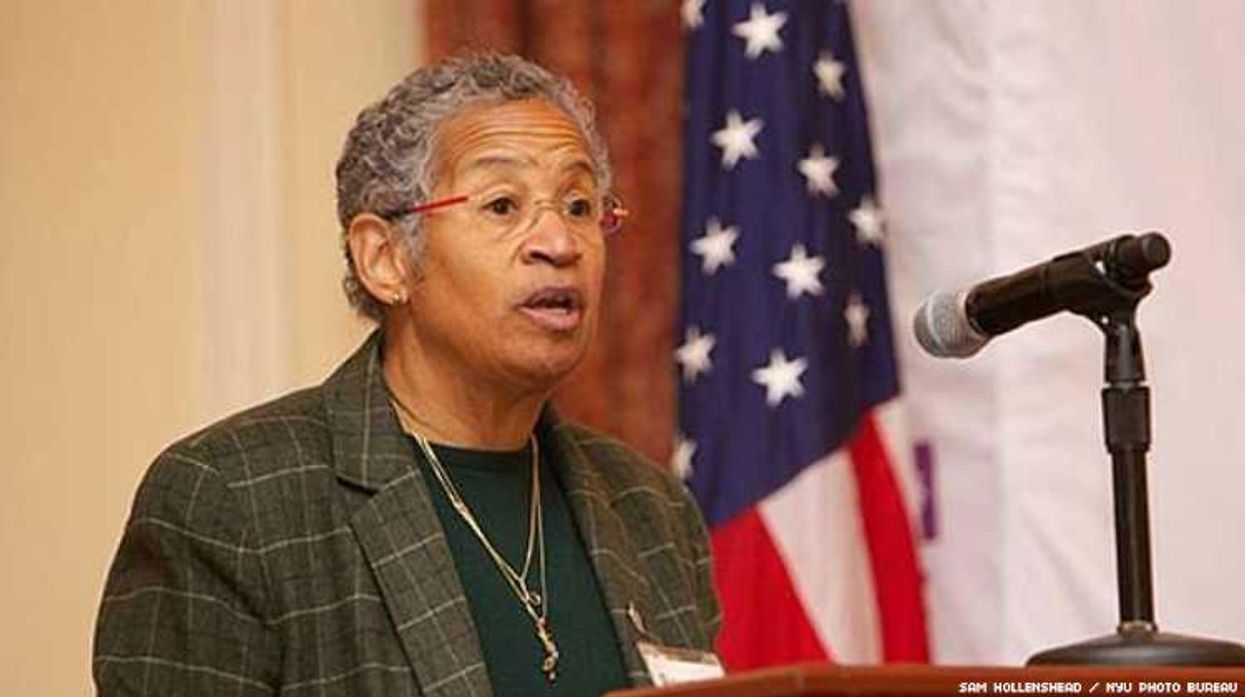News
Deborah Batts, First Lesbian Federal Judge, Dies at 72

Only one other Black lesbian has become a federal judge since Batts's appointment in the mid-'90s.
February 04 2020 3:19 PM EST
trudestress
By continuing to use our site, you agree to our Privacy Policy and Terms of Use.

Only one other Black lesbian has become a federal judge since Batts's appointment in the mid-'90s.
U.S. District Judge Deborah Batts, the first openly gay federal judge in the nation, has died at age 72.
Batts, who was also the first African-American faculty member at Fordham University Law School, died in her sleep Sunday, according to a Fordham press release. The cause of death was not stated.
Batts was nominated to the federal bench by President Bill Clinton in 1994 and confirmed by the U.S. Senate, joining the U.S. District Court for the Southern District of New York. Her confirmation went smoothly, and her sexual orientation did not come up. She once observed that it took a Democratic president to appoint her, as she did not fit the George H.W. Bush administration's idea of what a federal judge should be. She retired from the court in 2012 but continued to volunteer her services, CNN notes.
"From her time as an [assistant U.S. attorney] in our Criminal Division through her path-breaking appointment to the federal bench more than 25 years ago, Judge Batts was a relentless stalwart for justice," said a statement issued by Nicholas Biase, a spokesman for the U.S. Attorney's Office for the Southern District of New York, according to CNN. "She will be deeply missed by our Office, in the courthouse and across the legal community."
"Judge Batts lived an extraordinary life and leaves a remarkable legacy," Sharon McGowan, Lambda Legal's chief strategy officer and legal director, wrote in a blog post. "She was a trailblazer as an openly LGBT judge, but she was also a mother, a lawyer, a prosecutor, and someone who inspired generations of law students. All of these aspects of her identity were what made Judge Batts the incredible person that she was."
McGowan also pointed out that there is still a dearth of LGBTQ people of color in federal judgeships. Only one other Black lesbian has become a federal judge since Batts's appointment, she said.
"While there will never be another Deborah Batts, there are many extraordinary LGBTQ people of color in the legal profession who are far too often overlooked for positions of leadership and public trust, including federal judgeships," McGowan said. "That must change."
Batts graduated from Harvard Law School in 1972 and then clerked for a federal judge. She was an attorney in private practice from 1973 to 1979, when she became an assistant U.S. attorney in the Southern District of New York. She became a law professor at Fordham in 1984, then resigned that position when she became a federal judge. She eventually returned to Fordham as an adjunct professor.
"Judge Batts was a beloved member of our community and will be greatly missed. We are grateful to her for her brilliance, passion and friendship. As the first African American woman to receive tenure and the first openly LGBTQ federal judge, she broke barriers and opened doors," said Matthew Diller, dean of Fordham Law School, in the press release. "Since joining the federal bench, we have been fortunate to hold on to her as a superb teacher of trial advocacy and a dear friend. She was a mentor to students and faculty alike. We will miss her sharp sense of humor and the joy that she took in life."
While she broke ground, Batts made clear that no one aspect of her identity should define her. "I'm a mother. I'm an African-American. I'm a lesbian. I'm a former professor. If people assume anyone of these aspects is going to predominate, it would create a problem," she told the New York Law Journal in 1994.
Batts was known for her work with a rehabilitation program for offenders. She also presided over several high-profile trials, including one in which a suspected terrorist pleaded guilty to stabbing a prison guard while in custody, and one in a lawsuit in which New York residents accused former Environmental Protection Agency head Christine Todd Whitman of making misleading statements about the air quality surrounding the World Trade Center site after the attacks of September 11, 2001. Batts had refused to dismiss the suit against Whitman, saying her statements were "conscience-shocking," but an appeals court dismissed it.
Batts was scheduled to oversee what promised to be another headline-grabbing trial -- that of lawyer Michael Avenatti, who is accused of stealing $300,000 from a book advance payment for one of his clients, adult-film star Stormy Daniels. Daniels is known for her alleged sexual encounter with Donald Trump before he was president, and has claimed she was paid off to be silent about it, all of which Trump denies. Avenatti's trial, set to start April 21, will likely be delayed now, the New York Daily News reports.
Batts is survived by her wife, Gwen Zornberg, and her children, James and Alexandra McCown.
Charlie Kirk DID say stoning gay people was the 'perfect law' — and these other heinous quotes